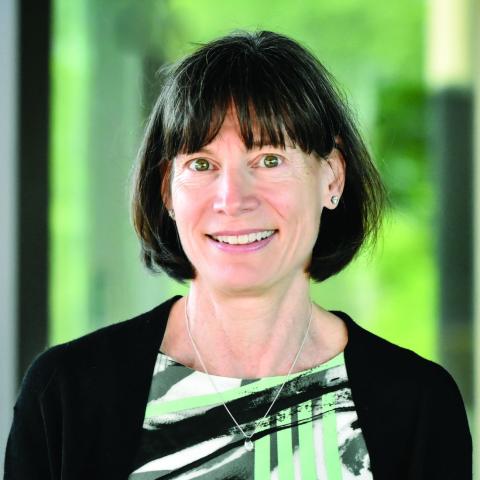Inspired in childhood to study medicine, Dr. Madduri chose to specialize in oncology after losing a grandparent to cancer. After moving to the United States as a fifth grader, she went back to India every summer. While visiting as a college student, Dr. Madduri found her grandmother pale, with symptoms such as blood in the stool. Diagnosed with stage IV colon cancer, the grandmother died 6 months later.
“I realized I really wanted to be an oncologist because I wanted to see what I could have done to help my grandma,” Dr. Madduri said in an interview.
Today, as a senior medical director at Janssen Oncology, Dr. Madduri joins her colleague Lisa Kallenbach, MD, and others on a team of hematologist oncologists who are working to advance the treatment of multiple myeloma with chimeric antigen receptor (CAR) T-cell therapy. She and Dr. Kallenbach also mentor other blood cancer specialists through a company-sponsored Women in Hematology program.
Dr. Kallenbach, group medical director at the firm, had also long wanted to become a doctor. Unlike Dr. Madduri, however, Dr. Kallenbach took a “long and winding road” and didn’t start med school until age 30.
Put off by college premed requirements, Dr. Kallenbach majored in anthropology and suppressed her desire to study medicine while she got a master’s degree in public administration, worked in public health, and volunteered with the Peace Corps. Ultimately, she decided to do a postbaccalaureate program, entered Brown University in Providence, R.I., and loved it.
“No one in my family was a doctor, so it was all very mystical to me,” she said. “It wasn’t until I worked for a doctor where it was demystified, and I thought, ‘Ah, they’re not any smarter. They just work really hard, and I can work hard. I always do.’”
Time for a change
Hard work brought both Dr. Kallenbach and Dr. Madduri to Janssen at roughly the same time, for similar reasons.
Dr. Madduri had been a junior faculty member at Mount Sinai, where she followed her mentor’s advice and fought hard to become principal investigator of the CARTITUDE-1 trial, which she presented at the annual meetings of the American Society of Hematology in 2019 and 2020. This research led to the Food and Drug Administration’s approval of the CAR T therapy Carvykti for multiple myeloma. Dr. Madduri also launched the CAR T program at Mount Sinai and quickly gained prominence in her field, despite being the hospital’s youngest faculty member for myeloma. But when the pandemic hit, she decided to try something different.
“I was helping one person at a time as a physician, but [Janssen] gave me the opportunity to help people in a much broader sense,” said Dr. Madduri, who joined the firm in April 2021. “I’m now the one designing the trials and looking at what the needs are in myeloma.”
“Janssen’s CAR T product [Carvykti] revolutionized the space because after a one-time treatment, patients are in a deep and durable remission and living much longer,” she said. Furthermore, Janssen offered Dr. Madduri the chance to design the trials toward that long-held goal.
“I want to be part of the team where they’re really dedicated to curing myeloma,” Dr. Madduri said. And she continues to see patients as an adjunct assistant professor at Stanford (Calif.) University, where she did a blood & marrow transplantation fellowship.
Dr. Kallenbach was also drawn to Janssen because of her pandemic experiences – and the promise of broader opportunities, including a better work-life balance. One patient at a time, she was treating a variety of hematologic disorders and malignancies. Although she enjoyed it, she just needed a change.
“It had been 9 months of COVID, and it was just a really busy time and stressful,” Dr. Kallenbach said. When a friend shared the Janssen job posting, she took it as a sign. “I thought, I could really make an impact here. Now I’ve gone from treating one patient at a time to treating tons of patients and helping to get this drug [Carvykti] to patients who can really use it.”


